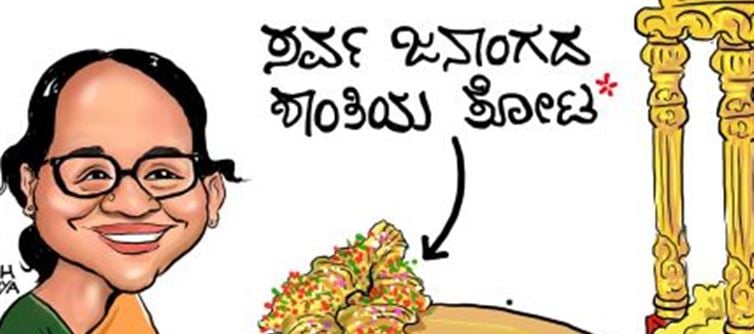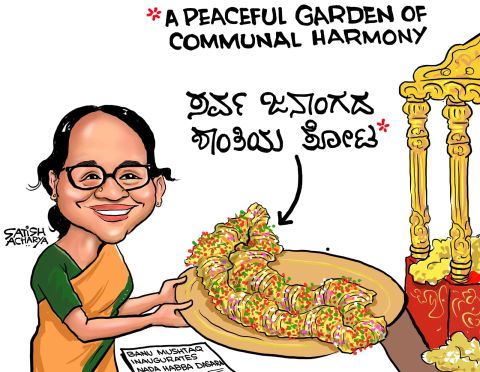
Mysuru dasara has always been a curious blend of pomp, politics, and performative culture. This year, the narrative took a “literary” turn with Booker Prize-winning writer Banu Mushtaq invited to inaugurate the festivities. But before we pop the champagne, let’s cut through the saccharine media coverage: this is not a mere celebration of literature—it’s a carefully orchestrated tableau of optics and contradictions.
First, the elephant in the room: Mushtaq is lauded globally for her fearless critique of societal and political orthodoxies. And yet, here she is, wrapped in the ceremonial garb of a state-sponsored spectacle. Isn’t it ironic? A writer who dissects power structures with surgical precision becomes a glittering prop in a centuries-old ritual that thrives on hierarchy, exclusivity, and political patronage. The invitation is less about honoring literary merit and more about leveraging global prestige to sanitize local spectacle.
Second, let’s talk optics versus substance. The media hails this as a “historic” moment, as if her presence magically elevates the festival’s cultural credibility. But how much of Dasara’s messaging—the pageantry, the processions, the royal mimicry—is compatible with the ethos Mushtaq writes about? The event smacks of tokenism: a global literary figure is parked front and center, while the deeper questions of inclusivity, caste politics, and local artistic marginalization remain untouched.

And of course, the political undertone is glaring. Invitations like these serve a dual purpose: they create an aura of progressiveness while deflecting scrutiny from messy local governance issues. dasara becomes not just a festival but a political PR exercise, with a Booker laureate’s name dangling like a gilded carrot to distract from systemic inequities and the commodification of tradition.
Finally, let’s address the subtle but unavoidable controversy: public reaction. Some see this as a win for cultural sophistication; others smell the faint whiff of hypocrisy. After all, this is the same state machinery that spends millions on rituals while education, literature access, and grassroots arts languish. The media glosses over this, but sharp eyes can see the paradox: a globally conscious writer in the middle of a centuries-old, exclusionary festival, waving at cameras while deeper societal questions go unanswered.
Banu Mushtaq’s presence is symbolic, yes—but symbolism without substance is performative, and performative culture is fertile ground for cynicism. Mysuru dasara, in this iteration, has become a curated spectacle: a beautiful photo op, a gilded narrative, and a carefully packaged controversy that no one in power actually wants to resolve.
Takeaway: This is not a literary victory. It’s a media-managed mirage, a festival cloaked in optics, and a reminder that in India, culture can be spectacular—but never entirely honest.




 click and follow Indiaherald WhatsApp channel
click and follow Indiaherald WhatsApp channel